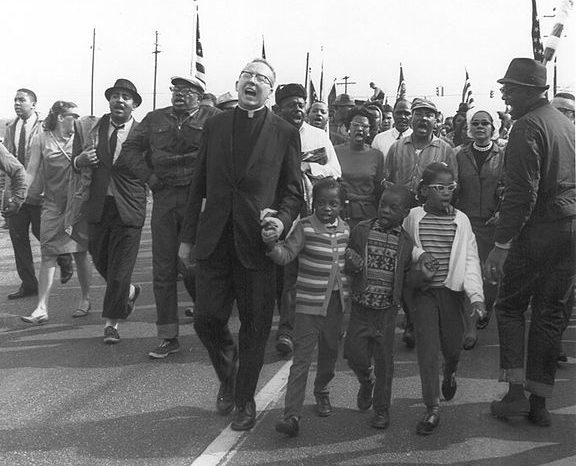We are too removed from ash.
Our furnaces soil our hands only as much as a stray clump of dust falls from the filter when we wrinkle our nose and change it with another high-efficiency, allergen-reducing plane of fibers designed to keep our lives clean.
Maybe there’s a stray bonfire, an occasional fireplace mess that dirties our palms or leaves a smudge – extra, chosen warmth for recreational purposes.
If you and I see ash it’s usually on the news, somewhere far away: the 90’s business women with ash around their noses and mouths, the result of breathing in smoke, emerging from the first foreboding basement bombing of the World Trade Center in New York. The dusty, sooty cheeks and noses and foreheads of the bombed and shot-at and chased in Other Parts Of The World as loved ones are pulled limp from rubble. The dazed eyes crinkled in old war photos, peering stark from ash and dirt, smoke-caked faces hiding shellshock.
Lucky us. We get to choose our ash.
Why has ash become #chic? Growing up only the old-school Catholics wore it on their heads and my child eyes tried hard not to stare. “What is Ash Wednesday?” I pointed to the calendar, asking a parent. “A Catholic holiday,” I was told, until our denomination started observing “40 Days of Prayer and Fasting,” and a blink and a few boy bands and technological advances later and there are ashes to go, there are people who never go to church bending and asking for dirty foreheads, what?
What is this impulse for a mark of sorrow, grief, repentance, confession? Why are strangers at train stations asking for ash, in our culture that let black arm bands of mourning drift down to the floor, an old dated practice to be left by the wayside?
Complaint or neuroses or hoarding or entitlement all cover one thing: call it sadness or terror or emptiness or grief, it’s behind the rant at the employee or the compulsive behavior or longing for attention. Mother Teresa spent so much time in dirt and recognized the sadness in North America. She called it a poverty of love.
Oh, God, love – it hurts. It hurts to want to be loved. It hurts to refuse or betray love. It hurts to lose love. And the pastor or priest bending with blackened thumb, murmuring says, I see your pain. It is recognized. Today others will see it too. You have a chance. Love Made Flesh bleeds for you.
Communal grief is necessary. You might stumble on a rare wake among Irish Catholics, or a Jewish family sitting shiva. For the most part, grief has become privatized, something you discuss with a therapist and hide away from the world – unless you sink down into it, let it engulf you, put it in album form and earn a deal with a record label.
Maybe we get to choose our ash. But we don’t get to choose our grief. No President can carry it away, no amount of veganism can remove our guilt, no amount of safe space can really protect us. You play Candy Crush or sew a new quilt or join a fantasy football league or secretly read Fifty Shades of Grey or join a club, anything to distract, but we all close our eyes at night, trying to go to sleep. And whatever you try to numb during waking hours comes to life.
Do not feed after midnight…
I’ve been waiting for this day, ever since two days before Christmas, when weeks of wrapping paper and pain and the Grinch and blood finally contracted into finality, and I avoided looking at my beloved nativity set because Mary had her baby, and mine was lost, the heartbeat ended.
Noel, Noel, Noel, Noel – born is the King of Israel.
My favorite time of year screeching out of control, the beautiful depth of the liturgical calendar and Advent and hang on, little buddy, is it a boy or girl? Then the baby is gone, missing from the manger. Two children up at six on Christmas morning, starry-eyed and bouncing and laughing. I smile and laugh, turn my head, try to hide the grimace of pain, the tears rolling hot.
Chunks of grace, substantive and heavy, held the doors of our souls open. A girl named Micah wrote this, published it just a couple of days after Christmas when I was sure there was nothing in a devotional email pertaining to an Advent miscarriage.
I’ve been waiting for this day, this thundercloud of a day on the horizon of church life, when liturgy would finally match my insides. I do not want a sunny day when I’m sad.
The last enemy to be destroyed is death.
From dust you come, to dust you shall return. Repent and believe the Gospel.
Your body is feeble. Every life involves pain.
Today we acknowledge it.
And we confess not only our frailty but our hope that blood, ash, and tears do not have the last word. In Revelation, blood and smoke and tears can indicate new life.
“And when he had taken it, the four living creatures and the twenty-four elders fell down before the Lamb. Each one had a harp and they were holding golden bowls full of incense, which are the prayers of God’s people. And they sang a new song, saying:
You are worthy to take the scroll
and to open its seals,
because you were slain,
and with your blood you purchased for God
persons from every tribe and language and people and nation.
You have made them to be a kingdom and priests to serve our God,
and they will reign on the earth.
Look! God’s dwelling place is now among the people, and he will dwell with them. They will be his people, and God himself will be with them and be their God. He will wipe every tear from their eyes. There will be no more death or mourning or crying or pain, for the old order of things has passed away.
He who was seated on the throne said, ‘I am making everything new!'”
We are dust without you, God.
Your Kingdom come, your will be done, on earth as it is in heaven…
Make us new creatures. We can’t live this life without you.
Amen.





